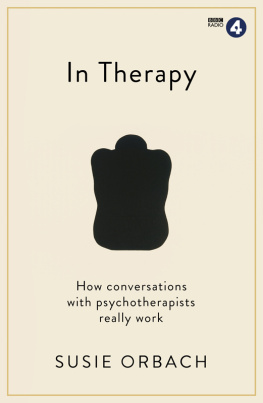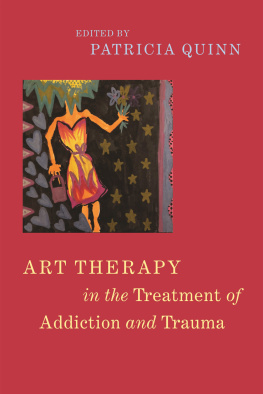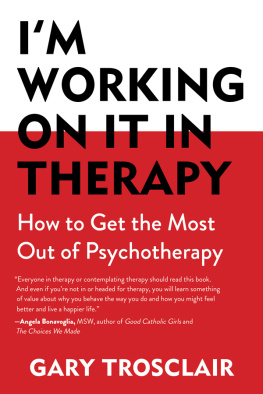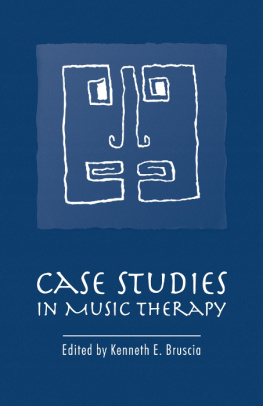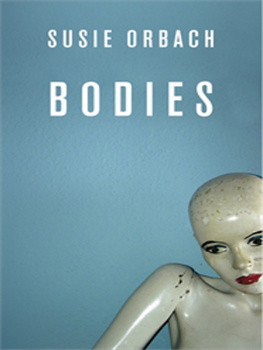In Therapy
Susie Orbach is a psychotherapist, psychoanalyst, writer and social critic. She is the founder of the Womens Therapy Centre of London, a former Guardian columnist and visiting professor at the London School of Economics and the author of a number of books including What Do Women Want, On Eating, Hunger Strike, The Impossibility of Sex, Bodies which won the Women in Psychology Prize and the international bestseller Fat is a Feminist Issue, which has sold well over a million copies. The New York Times said, She is probably the most famous psychotherapist to have set up couch in Britain since Sigmund Freud. She lives in London and lectures extensively worldwide.
Also by Susie Orbach
Bodies
On Eating
The Impossibility of Sex
Towards Emotional Literacy
Whats Really Going on Here
Fat is a Feminist Issue
Fat is a Feminist Issue II
Hunger Strike
Also by Susie Orbach and Luise Eichenbaum
Bittersweet: Love, Competition & Envy in Womens Relationships What Do Women Want? Exploding the Myth of Dependency Understanding Women: A Feminist Psychanalytic Approach Outside In Inside Out: A Feminist and Psychoanalytical Approach to Womens Psychology
Also by Susie Orbach, Lisa Appignanesi and Rachel Holmes
Fifty Shades of Feminism
In Therapy
How conversations with psychotherapists really work
Susie Orbach

First published in Great Britain in 2016 by
PROFILE BOOKS LTD
3 Holford Yard
Bevin Way
London WC1X 9HD
www.profilebooks.com
Susie Orbach, 2016
The moral right of the author has been asserted.
All rights reserved. Without limiting the rights under copyright reserved above, no part of this publication may be reproduced, stored or introduced into a retrieval system, or transmitted, in any form or by any means (electronic, mechanical, photocopying, recording or otherwise), without the prior written permission of both the copyright owner and the publisher of this book.
A CIP catalogue record for this book is available from the British Library.
eISBN 978 1 78283 311 6
For Jeanette Winterson, who has always wanted to know what goes on in the consulting room
Preface
Welcome to the consulting room. What follows is a play script the verbatim notes of therapy sessions, initially made for the radio, with the addition of my commentary about what I was thinking and feeling during the making of them. I also include some general observations about psychological and social phenomena.
Writing about clinical work and what actually occurs in the therapy is hampered by the confidentiality of the therapy relationship. It makes transcripts of actual sessions all nigh impossible. I have tried to solve the problem of how to invite the reader into the feel of what occurs by using actors to give a sense of the taste and flavour of an encounter. The therapy encounter defies conventional back and forth conversation as it searches to meet the hurts and burdens of the one who is seeking help.
The play script that has emerged conveys the feel of the consulting room. These encounters were not in any way scripted. They are the embodiment of what the characters expressed; characters who come to the therapy in search of understanding and relief from their anguish, confusions and problems.
Therapists dont so much solve such issues as attempt to open up new doors emotional, intellectual, physical for the individual, couple or family, to expand their notions of the roots and interplay of their difficulties so that they can intervene with themselves and with others differently. By listening intently to the narrative and the feelings, and hearing the contradictions that are felt by the individual, therapy tries to situate the person as an agent who can become interested in why she or he acts and feels the way they do and how they can develop a growing emotional complexity.
Like literature, psychoanalysis reveals the commonality of human experience by drilling into the particularities of the individual. The way an individual imagines and projects, the way the individual reads and misreads situations speaks to us in our own private struggles. A highly personal and specific story unfolds to reveal common human themes. Consider the man who disavows his girlfriend when in public but has no difficulty being privately intimate. The woman feels hurt and insecure. She becomes tongue-tied and disappears into herself as though indeed she does not exist for him. She sits waiting to be rescued. Taking this a step deeper, we discover that the man is acutely anxious although he is not aware of it. Greeting friends at a bar is a performance for him, not an easy pleasure. He steals himself to do it. He was brought up to play the piano in public from an early age a talent he has since foregone and learned the tricks of being on show. But it cost him emotionally. He felt unprotected going into public, wanted to hold his mother or fathers hand, but came to feel ashamed of his need. He drops his girlfriend, like he felt dropped, and armours himself in performance mode. His girlfriend carries his insecurity for him and it has a salience for her because growing up she felt her mothers attention desert her when her much elder brother, father and grandfather came home from work. Shes accustomed to being dropped yet finds its unbearable. Her shame about wanting to be included seals her mouth. She cant find a way in with her boyfriend just as she couldnt at dinner time with her father, grandfather and brother. Her intimate relationship with her boyfriend is hidden as was her closeness with her mother.
The emotional trope this couple share is confusion about dependency and need. They enact their disappointments with each other. As we unpick what drives each of their behaviours we come across the human search for secure attachment and recognition and the ways in which that search becomes derailed. We know about this. Its why we cry at the movies when the lovers come together. We understand that longing. We feel that longing. We may crave that belonging. The specific tells the general. And so it is with psychotherapy. Each story tells us about the individual or the couple while it tells us about ourselves. We want to know about others struggles because we want to know more deeply about ourselves and the project of being human.
The Making of the Programme
This is not a text book. My aim in making the programmes out of which this book came was to get as near to the experience of the consulting room as I could. In previous books, Fat is a Feminist Issue, Understanding Women, What Do Women Want, Bittersweet and Bodies, I wrote about what I was discovering about longings, conflicts, and confusions and used vignettes to describe and theorise the process of therapy and the theory that Luise Eichenbaum and I were developing.
In The Impossibility of Sex, I wrote a set of imaginary cases told from the point of view of a fictionalised version of myself. I wanted to convey the craft of the working therapist breathing, sweating, challenged, while thinking and feeling her patients dilemmas. Kevin Dawson, the Producer, had read it, pitched it to the BBC and they offered us a series of 15-minute programmes for BBC Radio 4 about the process of therapy. I knew I didnt want to script something; that would not show how therapy actually goes. I had recently done a couple of mini therapy type sessions with actors in a Wallace Shawn play directed by Ian Rickson. They and a series of sessions done earlier with Kate Bland for Cast Iron Radio and for an initiative by Jordan McKenzie for The Gay Mens Choir, had taken the therapy out of the consulting room without abandoning the conventions of the therapeutic session. I knew Ians genius with actors (we had occasionally worked together in the rehearsal room over the years when he was doing a new production) and I hoped that he would be able to choose and prepare actors to take part in a series in which they become characters who are in therapy with me.
Next page
